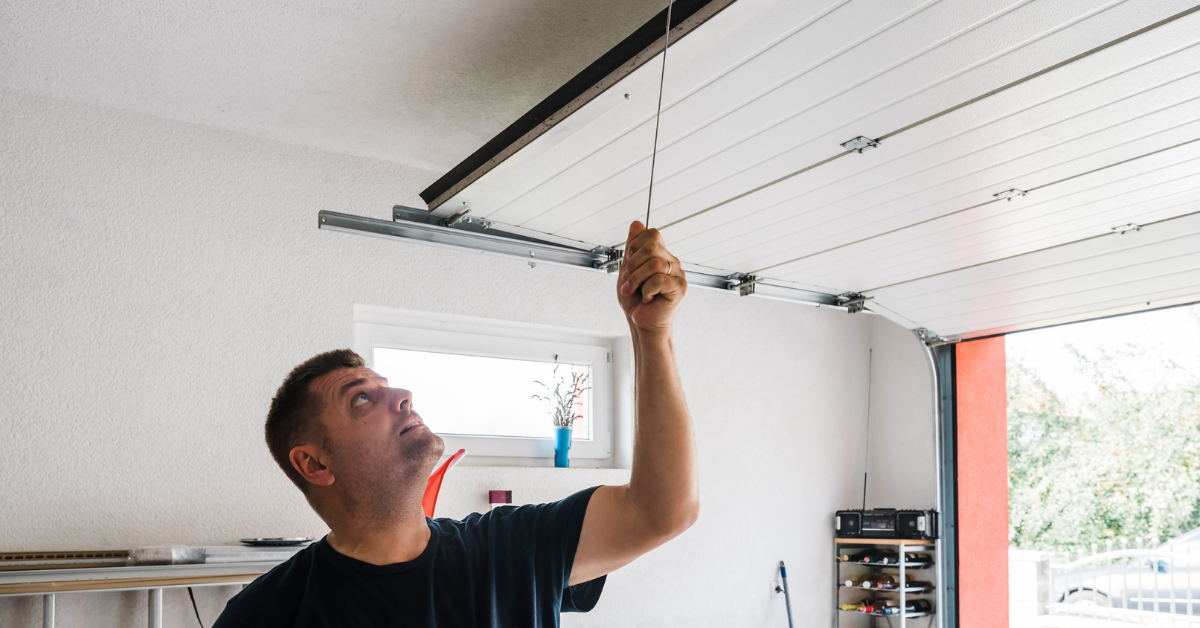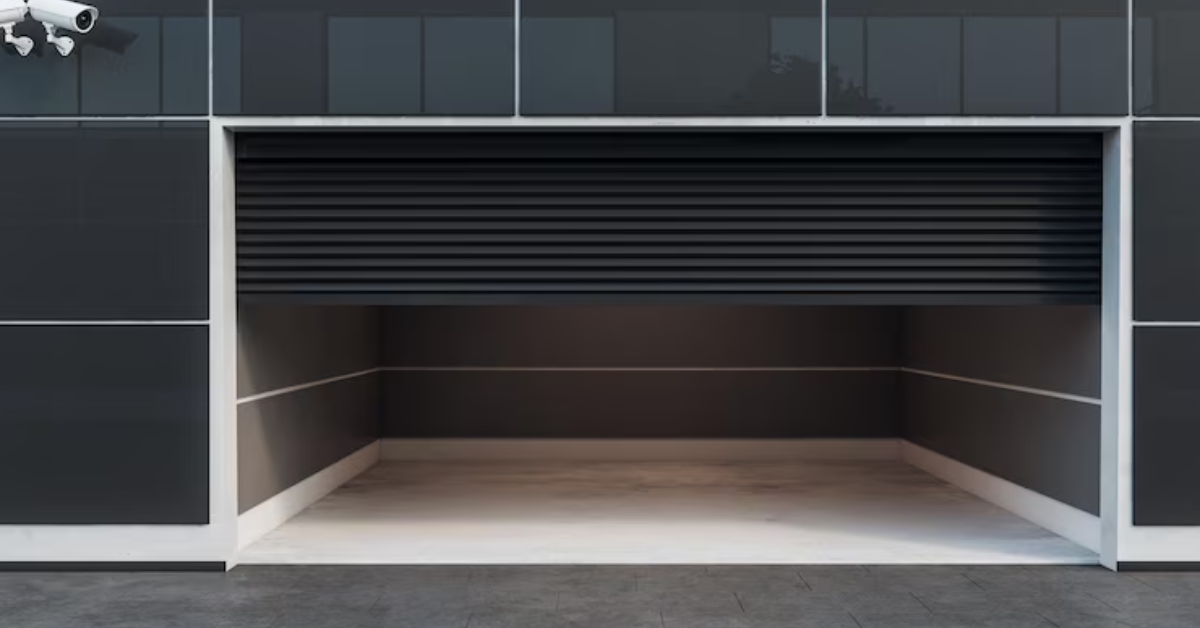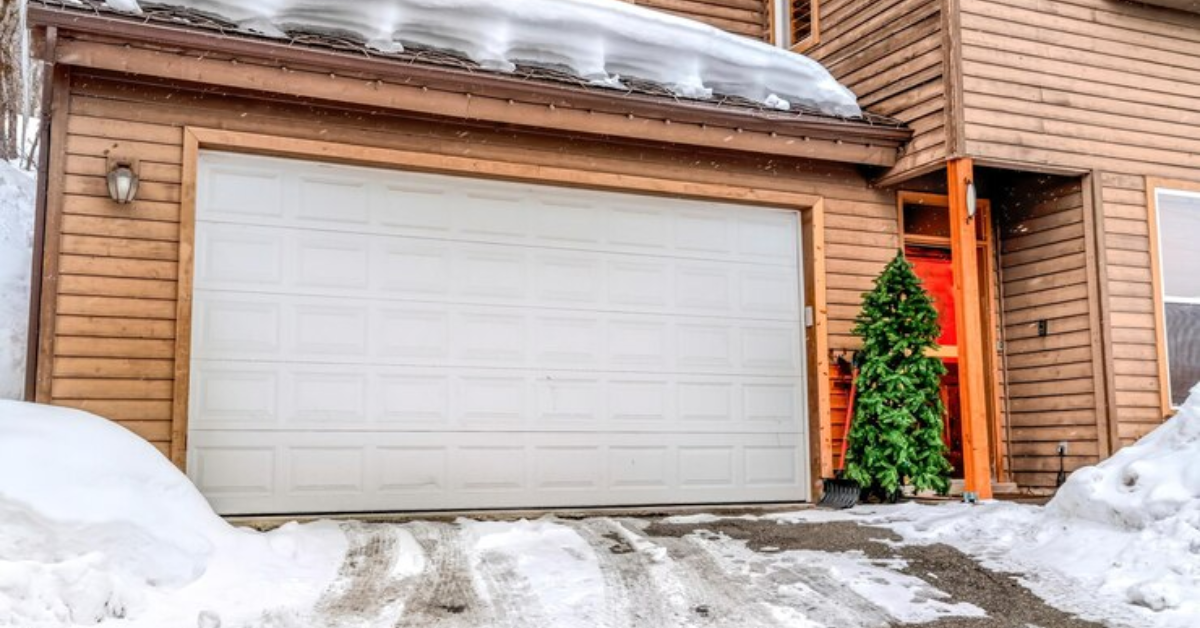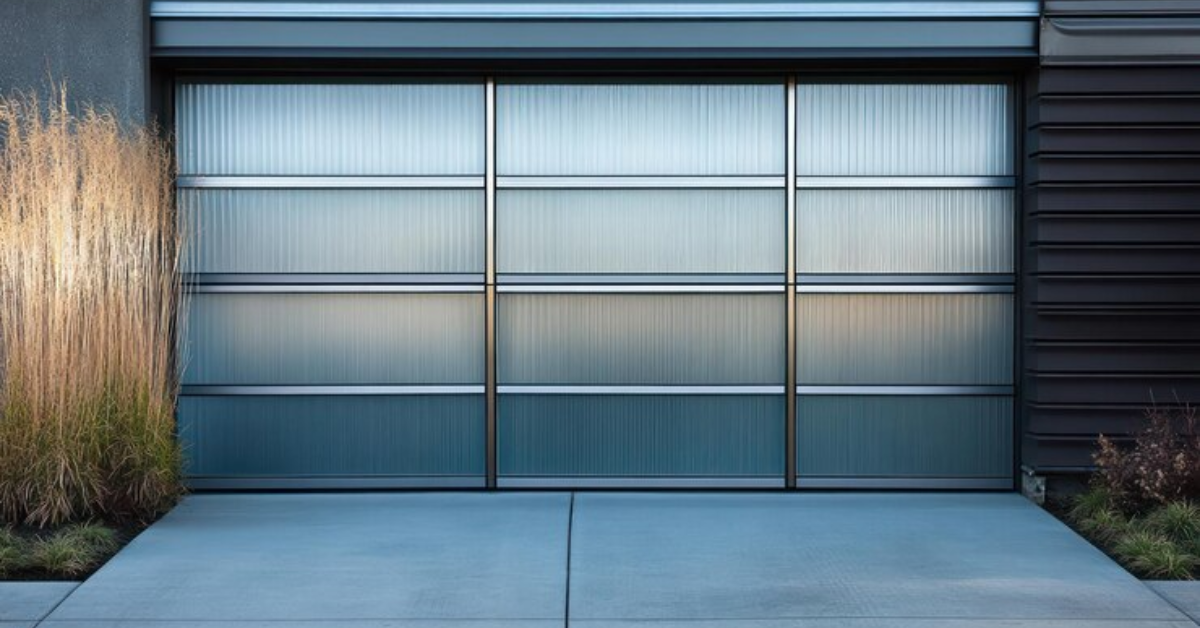Why Is My Garage Door Noisy? Causes and Fixes?
Think about the last time you opened or closed your garage door. Did it produce irritating squeaks, grating noises, or loud creaks? These types of sounds are what we mean by "noisy garage doors," and they can be really annoying. It's like having an alarm clock that goes off at the wrong time – disruptive and unpleasant.
Now, why should you care about fixing these noisy garage doors? Well, it's not just about the annoyance factor, though that's significant. The main reason is that these noises often indicate an
underlying problem with your garage door. It's similar to how a warning light in your car signals a potential issue. If you ignore those strange sounds from your garage door, the problem can become more serious and expensive to fix later on.
Imagine it like this: if you have a leaky faucet in your home, it might start as a small annoyance, but if you don't fix it, it can lead to a bigger water bill and even damage to your plumbing. Similarly, noisy garage doors are a signal that something isn't quite right, and addressing the issue promptly can prevent it from becoming a more significant and costly problem. Plus, it's considerate to your family and neighbors who may be bothered by the racket. So, addressing noisy garage doors isn't just about personal comfort; it's also about preventing potential headaches and being a good neighbor.
Insight into the Fundamentals
Garage doors might seem like magic, but they operate on some straightforward principles. Essentially, they move up and down on tracks with the help of a motor (usually an electric one) and a system of springs and cables. When you press a button or use a remote, the motor powers the movement, allowing you to open and close the door. Understanding this basic mechanism can help you grasp why your garage door might get noisy over time.
When we talk about a noisy garage door, we're referring to the sounds it makes during operation. This can include squeaking, grinding, or rattling noises. These sounds often come from different parts of the door, like the rollers, tracks, or springs. Recognizing these noises is essential for diagnosing the problem and
finding the right solution.
Ignoring a noisy garage door can lead to more significant issues. These can include damage to the door itself, which may result in costly repairs. Also, the constant noise can be irritating and disruptive to your daily life. Furthermore, a noisy garage door might be an early warning sign of safety concerns or security risks. So, understanding the basics of garage door operation, recognizing noisy signs, and addressing them promptly is crucial for avoiding potential consequences down the road.
Causes of Noisy Garage Doors
The proper diagnosis of a noisy garage door requires an understanding of these possible causes. Identifying the specific cause can help you choose the right solution to make your garage door quieter and more efficient.
A. Worn-Out Rollers
Worn rollers are a common source of garage door noise. These rollers, which help the door move smoothly along the tracks, can become old and damaged over time, leading to squeaks and squeals when the door is in motion.
B. Loose Hardware
Another culprit for noisy garage doors is loose hardware. The nuts, bolts, and screws that hold various parts of the door together can become loose, causing rattling and clanking sounds as the door moves.
C. Lack of Lubrication
If your garage door isn't properly lubricated, it can become noisy. Lubrication helps reduce friction between moving parts, so when it's lacking, you may hear grinding or scraping noises during operation.
D. Misaligned Tracks
Garage door tracks need to be
aligned correctly for smooth operation. If they become misaligned, the door can rub against them, resulting in loud noises as the door opens and closes.
E. Damaged Springs
The garage door would not be able to open or close without the
assistance of the springs. When they're damaged or worn, the door may not move smoothly, causing noise and potentially safety hazards.
F. Weather-Related Factors
Weather can impact your garage door's operation. Extreme temperatures, moisture, or debris accumulation can lead to unusual sounds, such as cracking or popping noises.
G. Poorly Maintained Opener
The garage door opener, the device that controls the door's movement, also needs maintenance. If it's not well-maintained, it can make loud clicking or humming sounds.
DIY Solutions
If your garage door's noisy due to worn-out rollers, you can replace them. New rollers can make the door move quietly and smoothly. It's like giving your door a new set of shoes.
When you hear rattling noises, check for loose nuts, bolts, or screws. Tightening them up can eliminate those annoying sounds, making your garage door more peaceful.
Lubrication is like giving your garage door a spa day. Applying the right lubricant to the moving parts can reduce friction and those irritating squeaks and scrapes.
Misaligned tracks can cause a lot of racket. You can adjust them to ensure they're straight and properly aligned, so your door moves quietly along them.
If you suspect damaged springs, this is a job for the professionals. Replacing springs can be dangerous, so it's best to leave it to experienced technicians to keep you safe.
Weather-related noise can be minimized by weatherproofing your door. This keeps out moisture and other elements that can create loud sounds.
The garage door opener needs care too. Regular maintenance can prevent it from making strange clicking or humming sounds. Think of it like servicing your car to keep it running smoothly.
When to Seek Expert Help
Some garage door problems are tricky to handle on your own. If you notice issues like your door refusing to open or close, making loud banging noises, or if there's significant damage to the door itself, it's a sign that things are more complicated. This is when it's a good idea to call in a professional who has the skills and knowledge to tackle complex problems.
Safety should always be a top priority. Garage doors are heavy and can be dangerous if mishandled. If you suspect there are safety concerns, such as a garage door that doesn't stay in place when open or closed, or if you're dealing with electrical issues with the opener, it's best to leave it to the experts. They have the right tools and expertise to ensure your garage door is safe for use. It's better to be cautious and get professional help when safety is a concern.
Preventing Future Noise
To keep your garage door operating quietly in the long run, regular maintenance is key. This involves simple tasks like inspecting and lubricating moving parts, tightening loose hardware, and checking for signs of wear and tear. It's like giving your garage door a check-up to catch and address potential noise issues before they become major annoyances. Just like your car needs tune-ups, your garage door can benefit from seasonal maintenance. Before winter sets in or as spring arrives, it's a good idea to have a professional inspect and fine-tune your garage door system. This proactive approach can prevent noise problems and ensure your garage door functions smoothly throughout the year. Think of it as a regular health check for your garage door to keep it in tip-top, quiet shape.
Upgrading for Quieter Operation
If you're tired of the noise your garage door opener makes, consider upgrading to a quieter model. Newer garage door openers are designed with noise reduction in mind, so they won't disturb you or your neighbors as much. Insulated garage doors not only improve energy efficiency but also contribute to quieter operation. They can help muffle noise from both inside and outside the garage. So, if noise is a significant concern, investing in an insulated garage door can make a noticeable difference in creating a quieter environment. Think of it as adding extra padding to your walls to keep sound at bay.
Safety Precautions
Safety should always be your number one concern when repairing your garage door. Important safety measures are outlined below.
Power Off: Before starting any repairs, disconnect the power to the garage door opener. This way, you will not have to worry about any mishaps happening while you are working.
Use the Right Tools: Obtain the right equipment for the task at hand. Using the incorrect equipment increases the risk of injury or door damage.
Read the Manual: Familiarize yourself with your garage door's manual. It contains essential safety information and instructions for proper maintenance and repairs.
Safety Gear: Wear safety gear, including safety glasses and gloves, to protect your eyes and hands from potential hazards.
Working with Springs:
If you're dealing with garage door springs, be extremely cautious. Springs are under high tension and can be dangerous when mishandled. Consider hiring a professional for spring-related repairs.
One Person at a Time: Avoid having multiple people working on the door simultaneously. To avoid mishaps, effective communication is important.
Test the Door: After completing repairs, test the door to ensure it's working correctly before leaving the area.
Emergency Release:
Know how to manually release the garage door in case of a power outage or emergency.
Children and Garage Door Safety
Garage doors can pose risks to curious children, so it's important to take safety precautions to ensure their well-being. Start by educating your children about the potential dangers associated with garage doors, emphasizing that they should never play near or with the door. Keep remote controls out of their reach, and consider using a wall-mounted control panel placed higher up. Also, make sure your garage door is equipped with safety sensors that can detect obstructions and prevent the door from closing on people or objects.
Conduct regular inspections of the garage door and its components to spot any signs of damage or malfunction that could pose a danger to children. Always supervise children when they are in proximity to the garage door, especially when it's in operation. Lastly, instruct your children on what to do in case of an emergency involving the garage door, such as getting trapped under it. By adhering to these safety measures, you can help ensure the safety of both adults and children around your garage door.
Conclusion
Addressing the issue of noisy garage doors is not only a matter of comfort but also a wise investment in the long-term functionality and safety of your garage. By understanding the causes of these irksome noises and applying the appropriate solutions, you can ensure that your garage door operates quietly and efficiently. Whether through do-it-yourself maintenance, professional assistance when needed, or considering advancements in garage door technology, the goal is to create a quieter and more harmonious environment for your home and neighborhood. Remember, a little care today can prevent bigger and costlier problems down the road, making your garage door a silent partner in your daily life.




